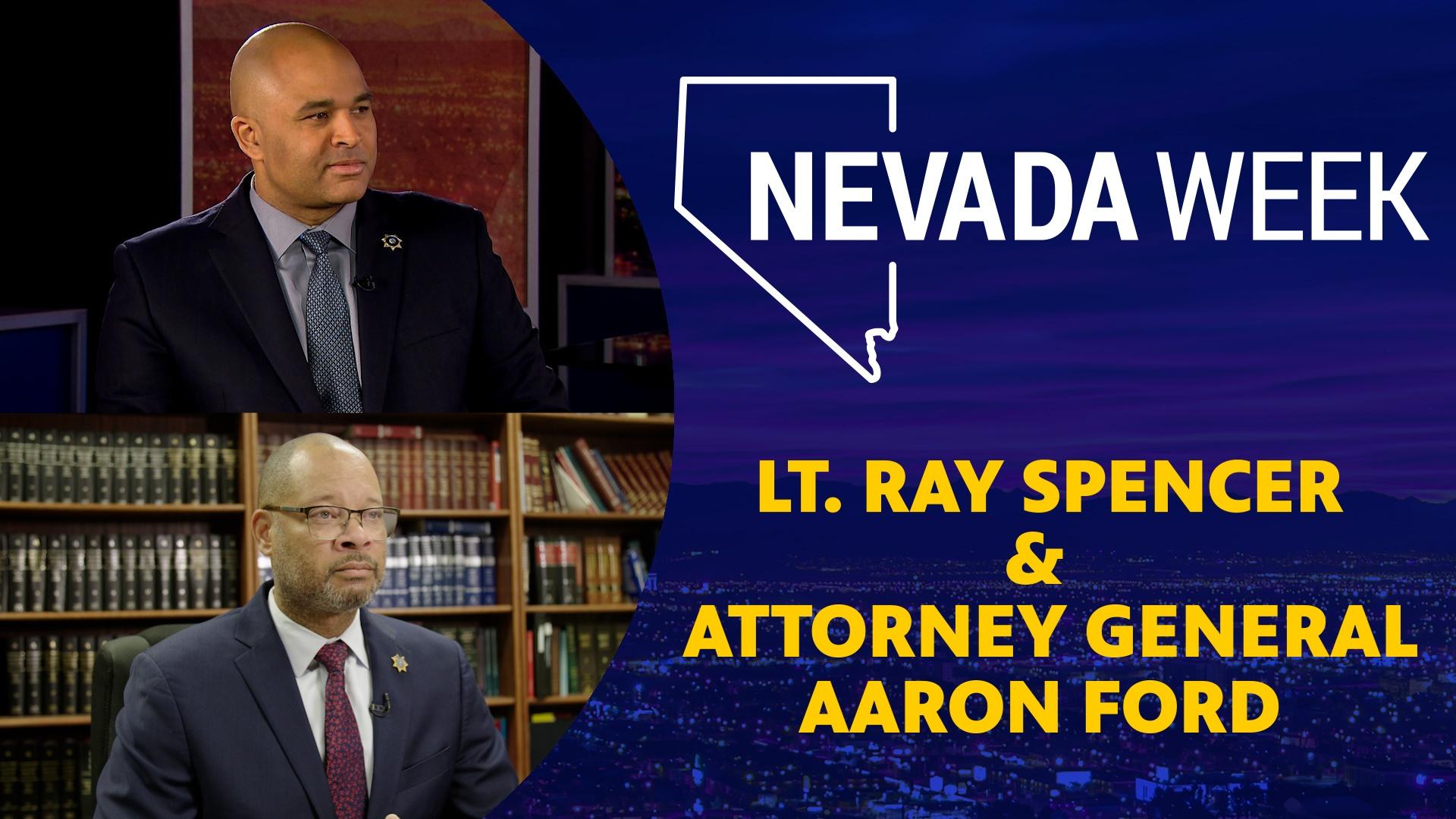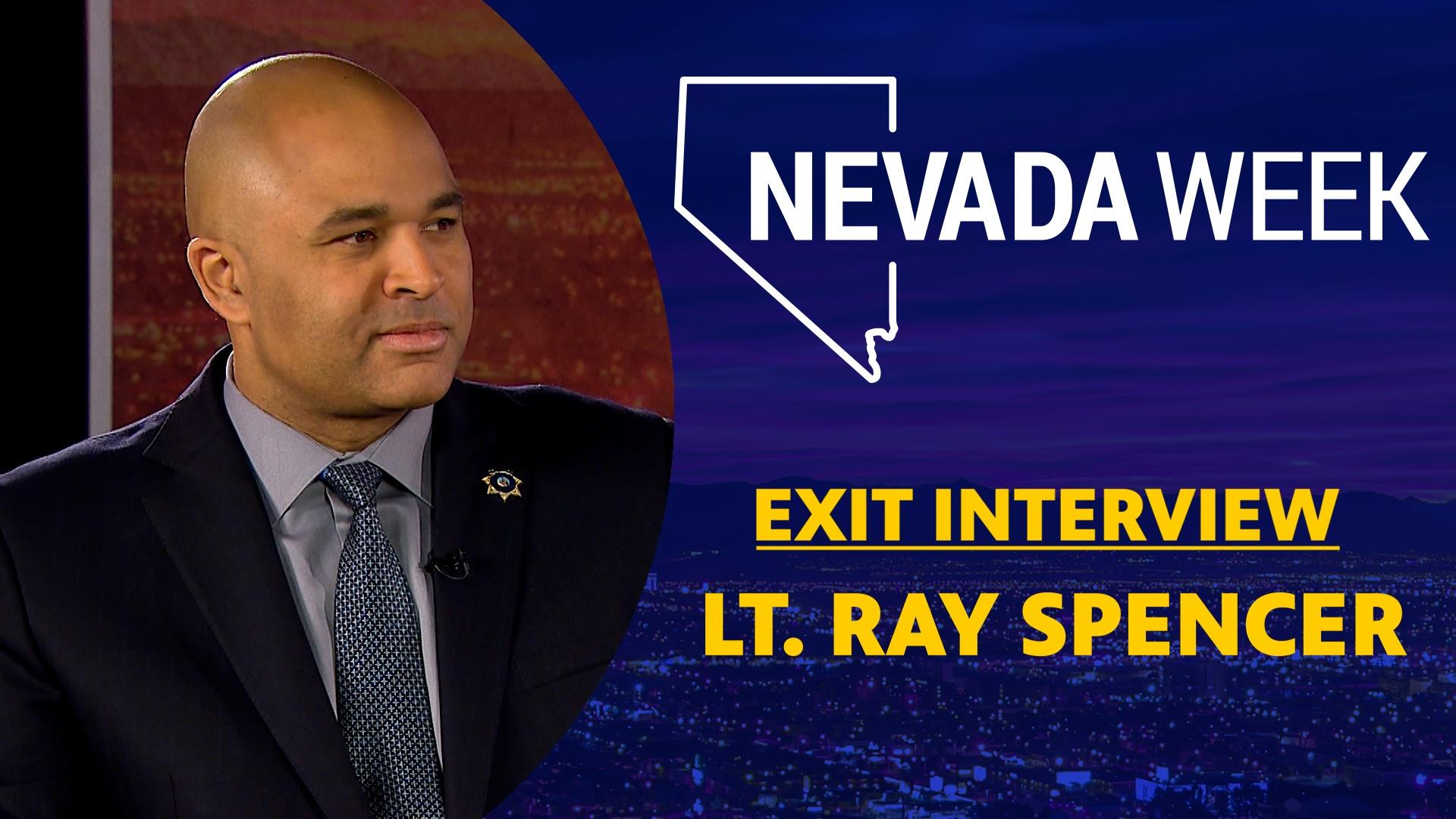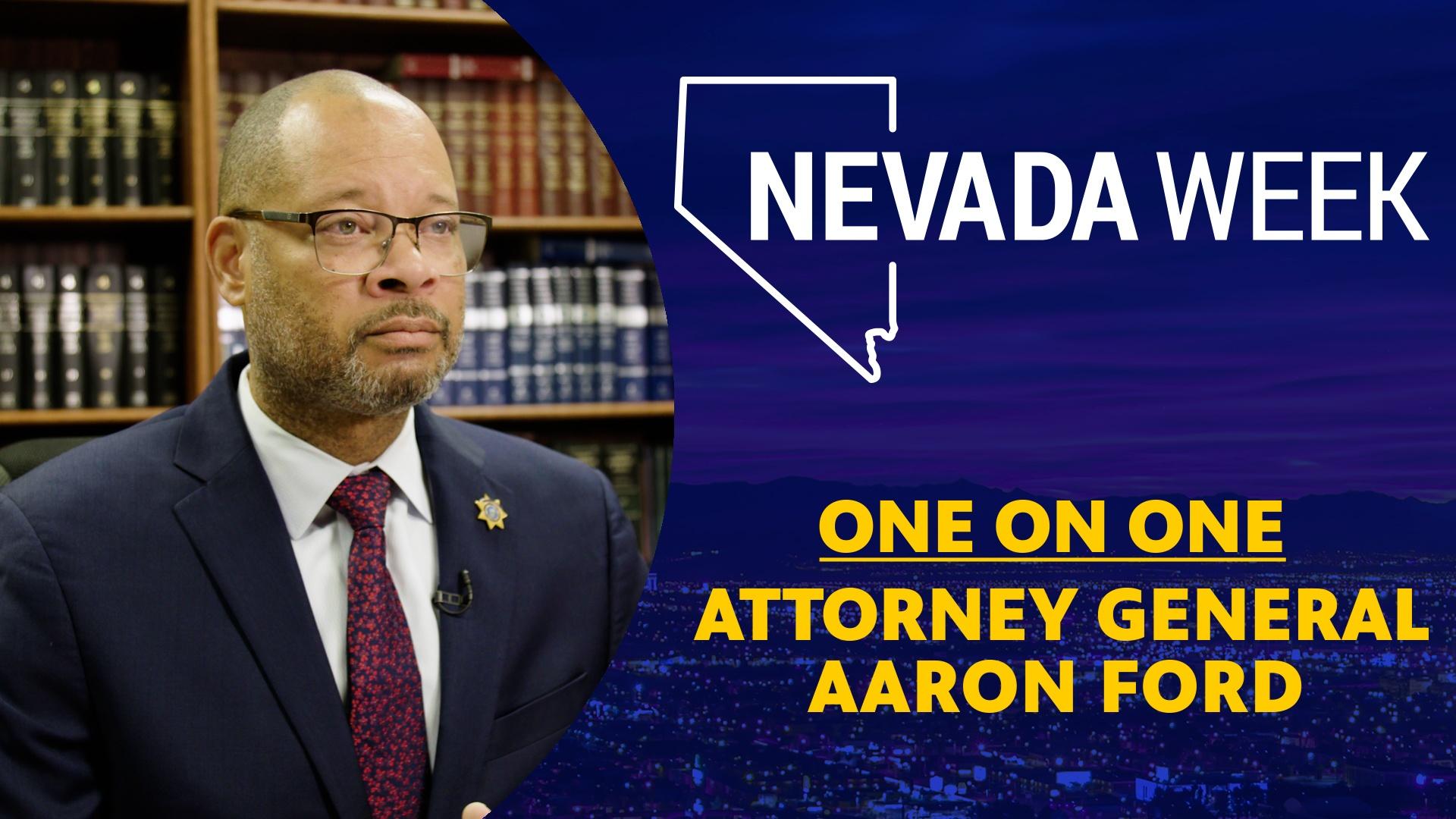Lt. Ray Spencer Interview and AG Aaron Ford Interview | Nevada Week





SEASON 4: EPISODE 44 | Airdate: 5/13/2022
Lt. Ray Spencer Exit Interview
According to a new report from the Centers for Disease Control and Prevention, the use of guns in homicides is a growing public health problem in the United States and it’s an issue that Metro’s Homicide Division is seeing firsthand.
Nevada Week talked about the rising homicide rate with retiring Metro Lt. Ray Spencer. Spencer headed up the Homicide Division for four years, but he’s been in law enforcement for more than 20 years.
He said in 2019 Southern Nevada had record low numbers of homicides but that changed in 2020. And in 2021, the area saw another increase in homicides. Spencer did note that Metro maintains a very high solve rate for those homicides.
Spencer blamed much of the increase in homicides on the accessibility of guns. He said it seems that everyone has a stolen gun. In addition, he’s seeing younger and younger kids having access to firearms. He said law-abiding gun owners need to be reminded to secure their guns so it’s not as easy for criminals to steal them.
He also said that ex-felons are getting firearms they are not supposed to have. He said there needs to be increased prosecution of ex-felons in possession of a firearm, especially at the federal level.
Another problem is repeat offenders. He said he arrested someone with 151 prior arrests in California. He said police can only do so much and that the criminal justice system is bursting at the seams.
Spencer was awarded Metro’s Medal of Valor for his bravery at the Route 91 shooting in 2017. He was working overtime at the festival when the shooting started.
“Definitely the worst day of my life,” Spencer said.
Like many people in the crowd that night, he thought the gunfire was fireworks but he quickly realized they were taking fire when Jason Aldean, who was on stage at the time, stopped playing.
Spencer ran towards the gunfire, which he thought was coming from ground level, but as he moved closer to where the shots were coming from he realized they were being fired on from above.
“It puts things in perspective,” he said, “It’s the first time that I truly did not know if I was going to make it home to hug my kids and see my wife.”
Spencer said that the 1 October shooting made him realize that “tomorrow is not a guarantee.” One of the most haunting images from that night, he said, was going to the main stage to check on victims and hearing cellphones ringing from the pockets of people who would never see their loved ones again.
“I have to focus on the positives of that day and that it could have been a lot worse for hundreds if not thousands of more people,” he said.
Spencer likes to focus on how Las Vegas came together on October 2. He also believes the incident has made Metro the most prepared police department in the country.
Looking back on his career in law enforcement, which included working in the vice and sex trafficking section of Metro, Spencer is most proud of his time in the Homicide Division.
“There’s not many assignments where family members come up and hug you and thank you for bringing justice to the victim and their families. But at the same token, it’s a very, very challenging assignment,” he said.
The veteran cop said there is only so much murder that someone can deal with in their life. He is never called out to the scene for something good. Every call he gets is for something horrific. He said that kind of work weighs on you.
“The child cases are the worst. Especially when you have kids,” he said.
Despite the heavy toll working in homicide takes, Spencer said he likes to focus on the fact that someone has to do that assignment, and if someone isn’t investigating that crime, then the perpetrator is getting away with it. He said bringing justice to families helps him, and his team of detectives, get through their cases.
ATTORNEY GENERAL AARON FORD
Nevada Week took some of Lt. Spencer’s concerns to Nevada Attorney General Aaron Ford. He agreed that Las Vegas has a gun problem. He said his office has worked with partners on the local level to try to figure out ways to curb access to guns.
He said violent offenders and domestic abusers should not have access to guns. He agreed with Lt. Spencer that responsible gun owners need to lock up their guns and ensure they’re secure.
He also agrees that ex-felons who should not have guns should be prosecuted if they are found with those weapons.
AG Ford believes the criminal justice system can both come down hard on violent criminals and also work to rehabilitate people. He said that criminals are going to be back into society at some point and society in general needs to do more to rehabilitate.
He said there are four main purposes of criminal law: to punish, isolate, rehabilitate, and restore. Ford said society is good at the first two but needs to do a better job with the second two.
Nevada Week also talked to the attorney general about the recent settlements with opioid makers and distributors. Ford said that the settlements with the companies involved in making, marketing, and distributing an overabundance of opioids are just one prong in the effort to address the state’s opioid crisis.
He said Nevada has pursued 61 defendants related to opioids. The state has settled with about 10 and 50 are left to go.
“These lawsuits seek to hold those accountable whether they are the distributors, whether they are manufacturers, whether they are the pharmacies that were improperly dispensing medications. We want to hold them accountable for the work that they did,” Ford said.
He said some of the companies involved in opioids have downplayed their addictive nature and sometimes flat out lied about the nature of the drugs.
Ford said that in some cases companies’ targeted Nevada communities that, for whatever reason, they felt they could push even more pills into.
“We have some rural communities that received more pills doled out than the entire population, which doesn’t sound abnormal at some level but I mean in multiples, exponentially,” he said.
These lawsuits hope to hold those companies accountable but also get money from them to help fight the opioid crisis that has gripped so many areas of Nevada and the country.
Ford said Nevada communities have come together to create the One Nevada Agreement, which is an agreement that guides where and how the settlement money will be distributed to make sure there is a fair allocation.
It also means that when companies settle with the state they are settling with everyone and they know that another county or city won’t start a lawsuit outside of the state agreement.
Ford won’t be making decisions about where the money will be going. Those decisions will be made by the Committee for a Resilient Nevada. A working group he is part of has made recommendations to that committee.
One of the recommendations would be to put some of the money into foster care systems, which is often where the children of addicts or people who have died from overdoses end up.
